Did you know that one in seven Americans has chronic kidney disease, often unaware until it’s advanced? Your kidneys filter waste, balance fluids, and keep your body running smoothly, but certain foods can sabotage their work. From everyday snacks to seemingly healthy choices, these culprits might be silently damaging your kidneys. If you’re looking to heal or protect your kidneys, knowing what to avoid is crucial. In this article, we’ll uncover 22 kidney-damaging foods, backed by science, and share practical tips to make smarter choices. With real-life examples, easy swaps, and clear explanations, you’ll learn how to nourish your kidneys effectively. Whether you’re managing kidney issues or aiming to prevent them, this guide will empower you to take control of your health. Ready to discover the foods holding your kidneys back? Let’s dive in and start your journey to better wellness.
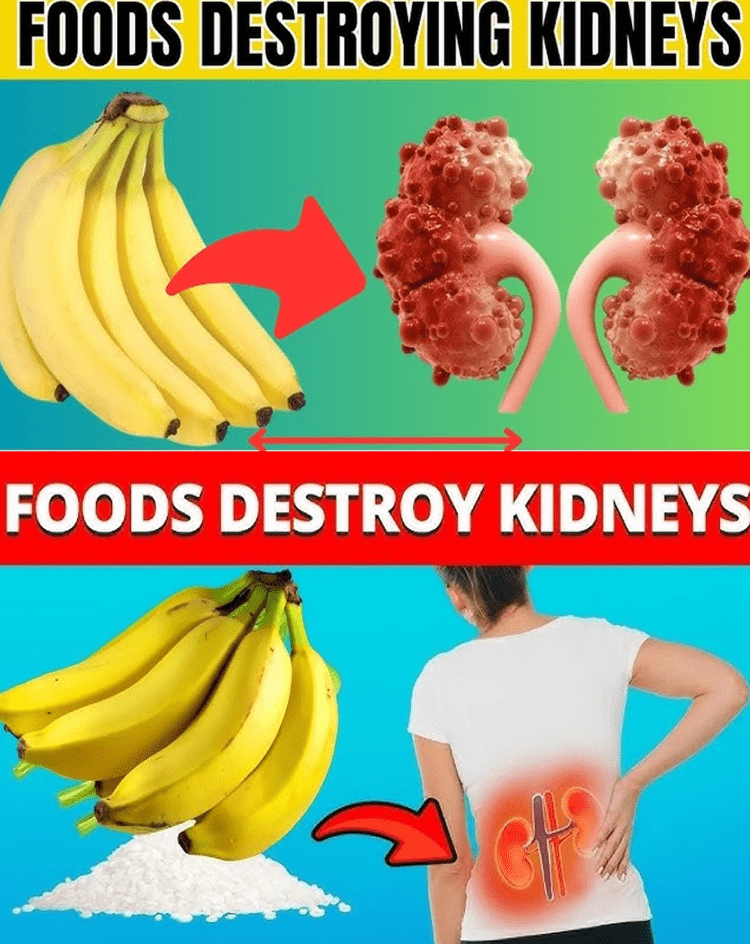
Why Your Diet Is Key to Kidney Healing
Your kidneys process about 50 gallons of blood daily, removing toxins and maintaining electrolyte balance. Poor dietary habits can overburden them, leading to kidney stones, reduced function, or chronic kidney disease. A 2020 American Journal of Kidney Diseases study highlights that high sodium, protein, and certain nutrients strain kidneys over time. Avoiding the 22 foods below can reduce stress on your kidneys, support healing, and promote overall health. We’ve grouped them into six categories to help you understand their impact and find kidney-friendly alternatives.
1. High-Sodium Processed Foods
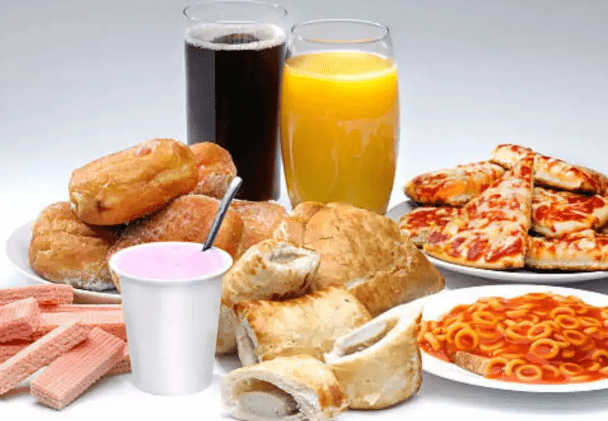
Processed foods like chips, canned soups, and frozen meals are sodium heavyweights, often exceeding 1,000 mg per serving. A 2019 Journal of the American Society of Nephrology study links high sodium intake to increased kidney disease risk by raising blood pressure and causing fluid retention.
Foods to Avoid:
- Potato chips and salty snacks
- Canned soups and broths
- Frozen pizzas and TV dinners
- Packaged ramen noodles
Why They Harm:
- Sodium increases blood pressure, damaging kidney vessels.
- Causes fluid buildup, straining filtration.
- Additives like MSG may increase inflammation.
Healthier Swap: Choose low-sodium or homemade versions. Rinse canned vegetables to cut sodium by up to 40%.
Real-Life Example: Lisa, a 45-year-old nurse, switched from canned soups to homemade vegetable broth. After two months, her blood pressure dropped, easing her kidney strain.
2. Processed Meats and Deli Cuts
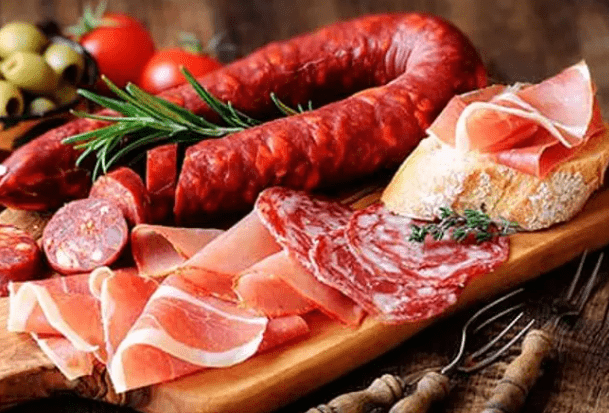
Bacon, sausage, deli meats, and hot dogs are loaded with sodium, nitrates, and phosphates. A 2021 Kidney International study notes that phosphates can accumulate, impairing kidney function, while sodium raises blood pressure.
Foods to Avoid:
- Bacon and sausage
- Deli meats (ham, turkey, salami)
- Hot dogs
- Canned meats (spam, corned beef)
Why They Harm:
- High sodium promotes hypertension.
- Nitrates increase oxidative stress.
- Phosphates disrupt mineral balance.
Healthier Swap: Opt for fresh, lean meats like chicken or fish, seasoned with herbs.
Pro Tip: Check labels for sodium under 300 mg per serving.
3. Sugary Drinks and Sodas
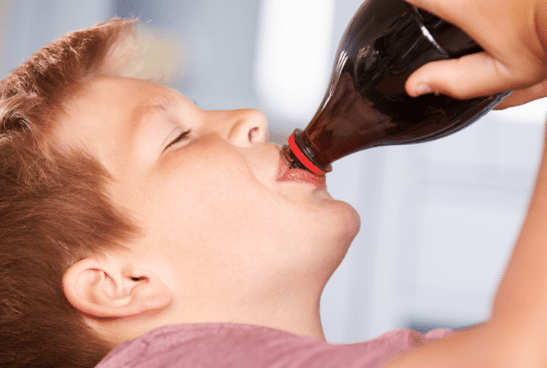
Sodas, energy drinks, and sweetened juices spike blood sugar and often contain phosphorus additives. A 2016 Nephrology Dialysis Transplantation study found that sugary drinks increase kidney stone risk and contribute to chronic kidney disease.
Foods to Avoid:
- Regular and diet sodas
- Energy drinks
- Sweetened iced teas
- Fruit-flavored drinks
Why They Harm:
- Sugar spikes stress kidneys.
- Phosphorus additives promote stones.
- Artificial sweeteners disrupt gut-kidney health.
Healthier Swap: Drink water, unsweetened herbal teas, or infuse water with fresh fruit.
Case Study: John, a 38-year-old driver, replaced soda with water. After six weeks, his kidney stone symptoms lessened, and he felt more energized.
4. High-Protein Animal Products
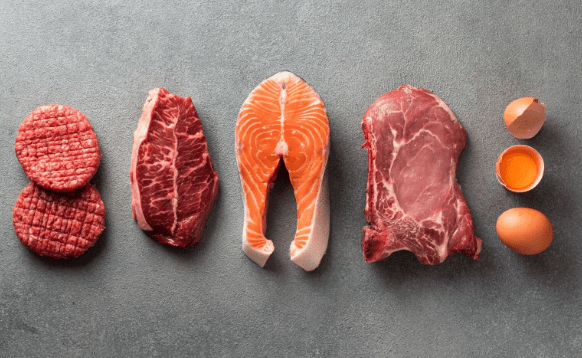
Excessive animal protein from red meat and dairy can overwork kidneys, especially if function is already compromised. A 2018 Clinical Journal of the American Society of Nephrology study linked high animal protein to faster kidney decline. Red meat also contains purines, which form uric acid, increasing stone risk.
Foods to Avoid:
- Beef and pork
- Full-fat cheese
- Whole milk
- Cream-based products
Why They Harm:
- High protein taxes kidney filtration.
- Purines raise uric acid levels.
- Saturated fats increase cardiovascular strain.
Healthier Swap: Limit red meat to 2–3 times weekly; choose plant-based proteins like beans or lentils. Use almond or oat milk for dairy.
Real-Life Example: Maria, a 50-year-old teacher, reduced red meat intake. Her kidney function tests improved after three months.
5. High-Potassium Foods for Compromised Kidneys
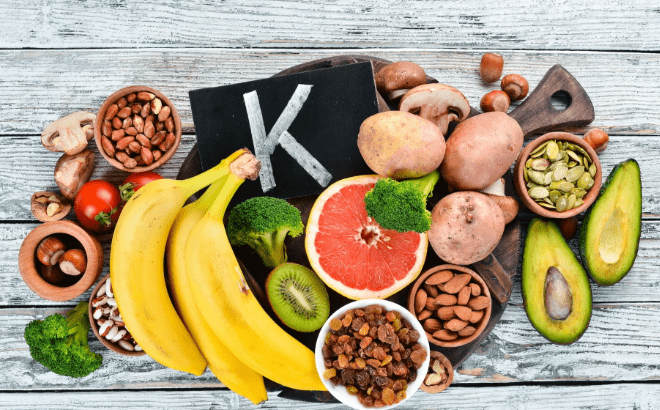
While healthy for most, potassium-rich foods like bananas, oranges, and potatoes can harm those with kidney disease. A 2018 Clinical Kidney Journal study notes that excess potassium can accumulate, causing heart and kidney issues.
Foods to Avoid:
- Bananas
- Oranges and orange juice
- Potatoes (especially fried)
- Avocados
Why They Harm:
- Excess potassium disrupts electrolyte balance.
- Can strain weak kidneys.
- Often paired with high-sodium preparations.
Healthier Swap: Choose low-potassium fruits like apples or berries if you have kidney concerns.
Caution: Consult a doctor before limiting potassium if you have kidney issues.
6. Refined Grains and High-Oxalate Foods
White bread, pasta, and high-oxalate foods like spinach and rhubarb can harm kidneys. A 2019 Diabetes Care study links refined grains to blood sugar spikes, stressing kidneys, while oxalates increase kidney stone risk.
Foods to Avoid:
- White bread and pasta
- Spinach
- Rhubarb
- Sweet potatoes
Why They Harm:
- Refined grains cause glucose spikes.
- Oxalates form calcium oxalate stones.
- Low fiber slows digestion, adding strain.
Healthier Swap: Choose whole grains like quinoa or brown rice. Opt for low-oxalate greens like kale.
Pro Tip: Pair greens with water to flush oxalates.
Kidney-Damaging Foods Overview
| Category | Foods | Key Harmful Component | Healthier Alternative |
|---|---|---|---|
| Processed Foods | Chips, Canned Soups | Sodium, MSG | Homemade broth, veggies |
| Processed Meats | Bacon, Deli Meats | Sodium, Nitrates | Fresh chicken, fish |
| Sugary Drinks | Soda, Energy Drinks | Sugar, Phosphates | Water, herbal tea |
| Animal Products | Beef, Cheese | Protein, Phosphorus | Lentils, almond milk |
| High-Potassium | Bananas, Oranges | Potassium | Apples, berries |
| Refined/Oxalate | White Bread, Spinach | Sugar, Oxalates | Quinoa, kale |
Practical Tips to Heal and Protect Your Kidneys
To support kidney healing, adopt these strategies:
- Limit Sodium: Aim for under 2,300 mg daily; read labels carefully.
- Cook Fresh: Prepare meals at home to control sodium and additives.
- Hydrate Well: Drink 8–10 cups of water daily to aid filtration.
- Balance Protein: Keep protein at 0.8 grams per kg of body weight.
- Choose Whole Foods: Prioritize fresh fruits, vegetables, and grains.
Real-Life Example: Tom, a 55-year-old retiree, cut processed foods and drank more water. After three months, his kidney function improved, and he felt less fatigued.
Caution: If you have kidney disease, work with a nephrologist or dietitian to tailor your diet, as needs vary based on kidney function.
Conclusion
Which Foods Are Worst for Kidney Healing?
Processed meats, canned soups, sodas, and high-potassium foods like bananas are top culprits due to sodium, phosphates, and potassium overload.
Can I Eat These Foods Occasionally?
If your kidneys are healthy, moderate amounts may be fine. For kidney disease, strictly limit or avoid based on medical advice.
How Do I Know If My Kidneys Need Healing?
Signs include swelling, fatigue, or changes in urination. Blood and urine tests can confirm kidney health; consult a doctor.
How Can I Start a Kidney-Friendly Diet?
Begin by eliminating one harmful food, like soda, and replace with water or whole foods. Gradually reduce sodium and processed items weekly.
Disclaimer: This content is for informational purposes only and does not replace professional medical advice. Consult a healthcare provider for personalized guidance.




